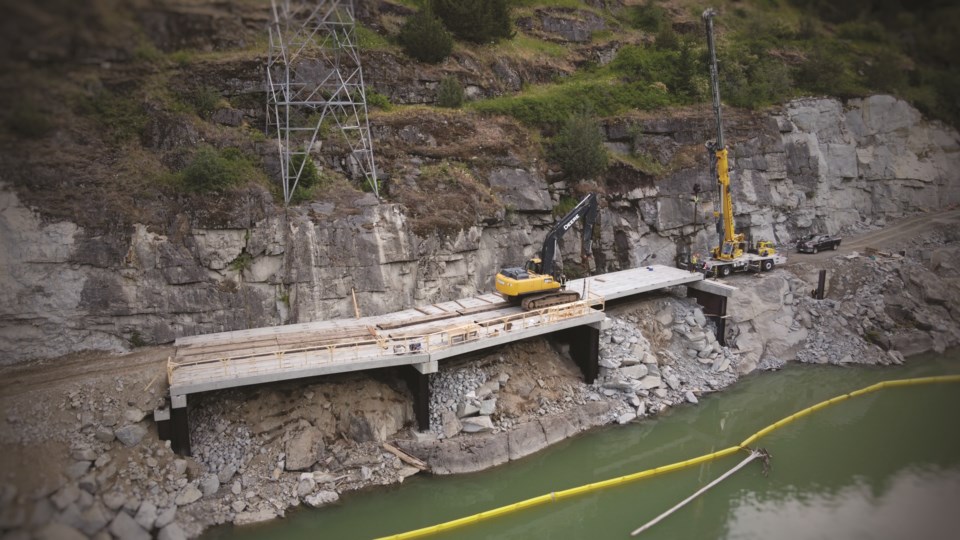Sometimes a road is just a road. But for the First Nations communities located along the In-SHUCK-ch Forest Service Road (FSR), the busy route represents much more than that: an essential thoroughfare, an economic generator, and, for the few hundred band members that have moved from the city back to their respective communities, it’s a path home.
“It was identified as an urgent infrastructure need by my communities going back to the early ‘80s, and from that period of time to the present, there’s been quite an influx of residents, of my people, into the valley,” explained Gerard Peters, who was the main negotiator for the In-SHUCK-ch Nation, representing the Samahquam, Skatin, Xaxstsa and N’quatqua, in treaty negotiations from 2003 till 2015.
On Friday, Nov. 5, a reopening ceremony will be held marking the improvements made over the years to what is one of the busiest FSRs in the B.C. forest ministry’s Sea to Sky Natural Resources District.
The upgrades were “a very long slog,” Peters said, and a key demand of the Nations until treaty talks ended about five years ago. First priority was addressing the longstanding safety issues, particularly around flooding and slides.
Fifteen years ago, it wouldn’t have been unusual for sections of the road to be immersed in water, which meant essential supplies like food had to be flown in. The road had also seen a number of fatalities over the years, areas the province targeted first in its upgrades.
“The real tough nut to crack was the zero-to-two-kilometre stretch. That’s been a real challenge and something we’ve been looking at for years,” said Malcolm Schulz, engineering officer for the Sea to Sky Natural Resources District. “It’s quite a narrow spot in the winter; that’s quite a treacherous little stretch to drive, and not an easy one to try and design. That’s why it took us a few years as well as a few years to secure some funding, and that’s the stretch that we’ve just now completed, so we’re pretty excited about that.”
The province has invested considerably in the FSR, representing about 80 per cent of the Sea to Sky district’s annual infrastructural budget. Victoria has spent about $800,000 annually on upgrades, on top of the roughly $5.8 million it spent on recent improvements to the zero-to-two-kilometre stretch, and continued to invest after treaty negotiations had concluded.
“There was a lot of work for us to secure the funding and the internal planning and those types of things. We had to make some changes to accommodate the road traffic while the project was going on,” said Dave Southam, Sea to Sky Natural Resource District manager. “But overall, we’ve seen such great support from the community that it’s been relatively easy for us to do this project. Other areas, like if you’re working in a city, it’s not quite as easy.”
That’s not to say the work is completed. As recently as last summer, Pique heard from concerned drivers about the condition of the road that they believed had only deteriorated as traffic had increased in the pandemic.
Kúkwpi7 Skalúlmecw Lil’wat Nation Chief Dean Nelson said paving the road should be a key priority moving forward.
“It’s very important for all people travelling that road to be safe,” he said. “That road benefits all of us.”
Southam noted that the district has looked at what it would take to pave the road from the junction of Highway 99 down to Harrison Mills, but the high cost to do so doesn’t make it feasible for the time being.
Along with providing an essential lifeline to nearby communities, Peters said the FSR also offered the kind of political leverage the Nations needed at the negotiating table.
“I think political profile was needed to get as far as we have. We’ve got as far as we have, I think, because of that,” he said.



